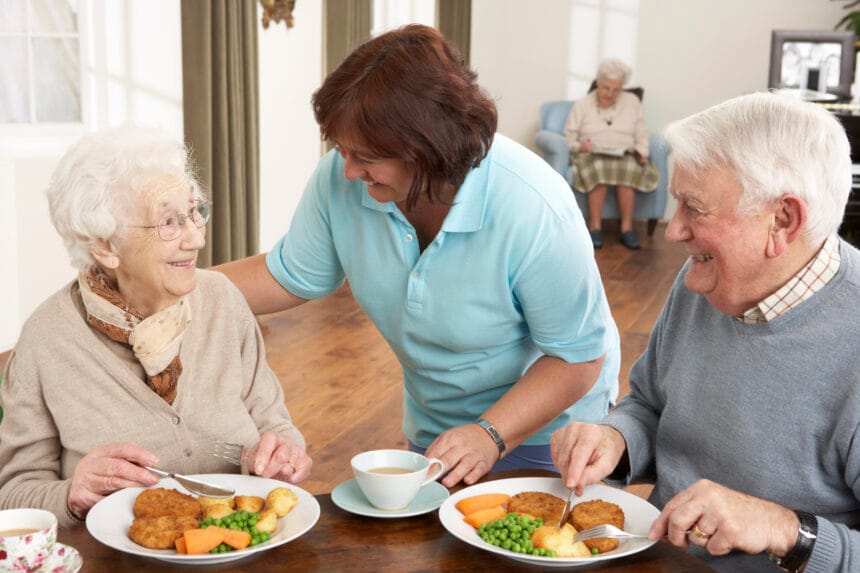You are going to want to do everything possible to keep your aging parents or other older people in your lives healthier. We talked about some of the things that you need to think about in this post. Unfortunately, this is a lot easier said than done.
The number of adults aged 65 or older will increase to 98 million by 2060. With this increasing number of older adults, the need for innovative aging solutions has never been greater. Smart home technologies can revolutionize how seniors age, remain independent, and prioritize their comfort and safety.
This is going to be very important to help older adults stay healthy. We talked about some of the biggest health issues that aging adults face in this article and smart home technology can help with them.
Let’s explore how various smart home technologies can transform the lives of older adults.
1. Managing Medication via Automation
Smart medication dispensers are a game changer for older adults who have trouble managing multiple prescriptions. You can store your medicines in these devices, which are pre-programmed to deliver medicines at the prescribed times. Additionally, you can set up the dispenser to:
- Send an alert to your smartphone when it is time to take the medication
- Send a notification to your family members in case you miss a dose
- Reorder prescriptions automatically if you’re low on supplies
Smart medication dispensers are especially helpful for those without a family nearby to care for them since they don’t need to depend on someone else for support. For instance, people who live abroad.
2. Preventing and Detecting a Risk of Fall
Falls represent a significant risk for older adults since, by age 85, around two-thirds of deaths by injury are caused by falls. You can use alcohol swabs and bandages from Unity Medical Supplies to cover wounds resulting from these falls. Smart home technology offers innovative solutions to prevent falling and reduce the alarming number of deaths. These solutions include:
- Installing motion sensors that light up your path at night
- Placemats that are sensitive to pressure near the beds of older adults, these mats will alert caregivers when they get up.
- Set up AI-powered cameras to identify unusual movement patterns and predict potential falling.
- Install automated doors that open with proximity sensors
As a result, smart home technologies increase the sense of security in older adults and promote better aging.
3. Advanced Kitchen Safety Systems
Smart home technology prevents accidents and allows for cooking meals independently. These kitchen safety systems include
- Stove sensors that automatically shut off after detecting no movement for a while.
- Smart ovens with built-in thermometers alert you when food reaches a safe temperature.
- Refrigerator sensors monitor food consumption patterns and freshness.
These measures are also suitable for older adults who have undergone a traumatic brain injury or have brain impairments that disrupt daily functioning.
4. Monitoring your Health
Smart health devices provide comprehensive health tracking for older adults. These devices include:
- Smartwatches to monitor heart rate, activity levels, and sleep patterns
- Bathroom sensors to detect changes in daily routines
- Bed sensors to monitor sleep quality and breathing patterns
- Install smart mirrors that can check vital signs during normal morning routines
The use of these devices can help identify several diseases. As a result, these devices help in early intervention and disease prevention.
5. Voice-Activated Home Control
Voice command systems serve as central control hubs. These systems include:
- Control lighting, temperature, and entertainment systems through simple voice commands
- Set up emergency voice-activated calling
- Create custom routines for different times of day
- Enable hands-free control of home appliances.
However, it is imperative to note that these technologies possess much of your data. As a result, you must be careful when dealing with voice-activated home control. For example, voice command systems can record audio, which can include private conversations or sensitive information. This data might be stored by the service provider, potentially exposing you to privacy risks if it’s accessed by unauthorized parties.
Endnote
These smart home technologies offer seniors unprecedented opportunities to age in place safely and independently. By carefully selecting and implementing these solutions while considering individual needs and preferences, we can create homes that adapt to changing requirements while maintaining dignity and independence.

